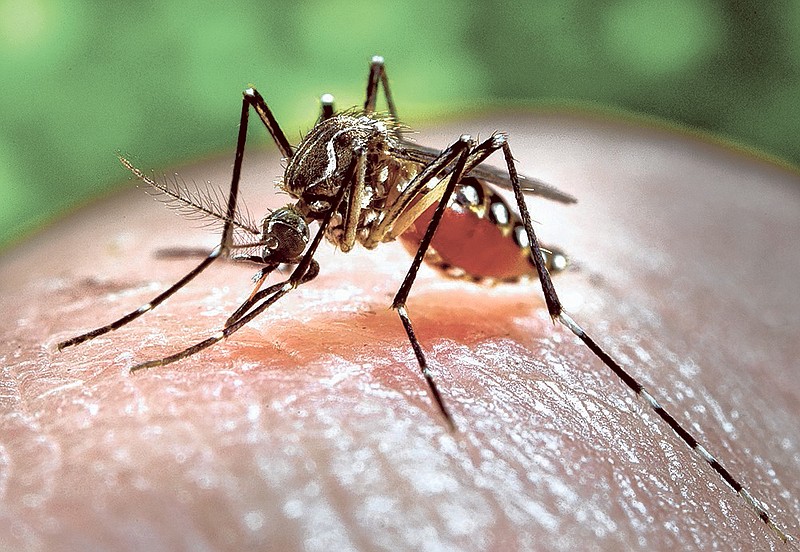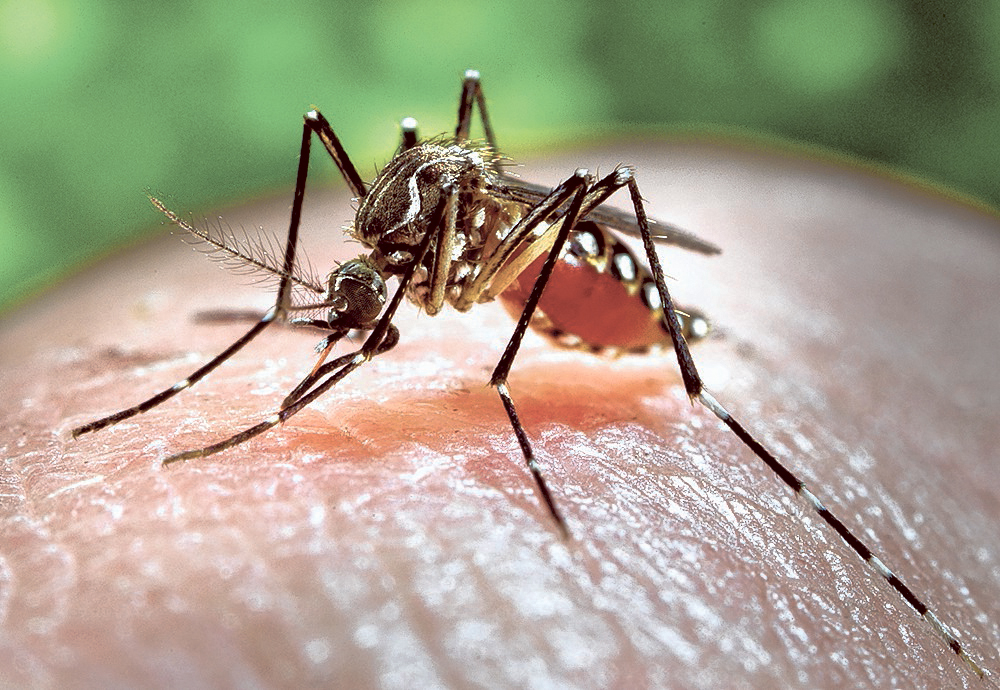Public health officials are urging area residents to protect themselves from mosquitoes this holiday weekend after an increase in West Nile virus cases in mosquitoes and humans, including two deaths in Tennessee and one in Georgia.
Mosquitoes "aren't just a nuisance" and carry potentially serious diseases, Dr. John Dreyzehner, commissioner of the Tennessee Department of Health, said in a statement.
"Last year 30 Tennesseans were infected with West Nile virus and, sadly, we saw two recent deaths in Shelby County," Dreyzehner said. "Most but not all healthy people can fight off West Nile virus infection, but some get seriously ill with major consequences like severe pain, long-term or permanent nerve or brain damage and even death. This is a critical time of year and it's up to all of us to do what we can to keep ourselves and others safe from mosquito bites."
In most years, the majority of human West Nile cases in the Southeast have occurred in August and September. All residents are advised to use mosquito protection for the remainder of the summer and early fall, since there is no known vaccine to prevent the virus.
In addition to West Nile virus, Tennessee has seen six cases of La Crosse encephalitis in children so far this year.
The Georgia Department of Public Health has confirmed seven human cases of West Nile virus so far this year, including one death. Additionally, there has been one confirmed case of Eastern Equine Encephalitis, a rare illness in humans, which resulted in death.
"Georgians can reduce the number of mosquitoes around their homes and yards by getting rid of standing water," said Chris Rustin, director of environmental health for the Georgia Department of Public Health. "Standing water is a breeding ground for mosquitoes that may be infected with West Nile virus and other mosquito-borne diseases."
"Tip and toss" all containers that can collect water - flowerpots, buckets, pool covers, pet water dishes, discarded tires and birdbaths - anything that holds water and gives mosquitoes a place to thrive. Mosquitoes that carry West Nile virus look for stagnant water to breed in, so be sure gutters and eaves are clear of leaves and debris.
Anyone with questions about mosquito-borne viruses should speak to their health care provider or call their local county health department or environmental health office.
Contact staff writer Elizabeth Fite at efite@timesfreepress.com or 423-757-6673.
Health tips
Tips from Tennessee and Georgia health officials:• Mosquitoes carrying West Nile virus usually bite at dusk and dawn, so avoid or limit outdoor activity at these times.• Use insect repellents such as DEET, Picaridin, oil of lemon eucalyptus or IR3535 on your skin, following all label recommendations for use. Pay particular attention to recommendations for use on children, and never apply any of these products around the mouth or eyes at any age. Consult your health care provider if you have questions.• Reduce mosquito populations around your home. Mosquitoes can breed in any place that holds standing water, including clogged drains or gutters, watering cans and empty bottles.• Use products containing permethrin, a highly effective insecticide, for clothing, shoes, bed nets and camping gear. Permethrin-treated clothing repels and kills ticks, mosquitoes and other pests and retains this effect after repeated laundering. Some commercial products are available pretreated with permethrin. As a caution, however, it is not to be used directly on skin.• Wear “long, loose and light” clothing, like long-sleeved shirts and long pants, to help prevent bites through fabric. Tuck your pants into your socks and your shirt into your pants. Light-colored clothes are less attractive to many insects and may allow you to spot them more easily.• Make sure doors and windows are in good repair and fit tightly, and fix torn or damaged screens to keep mosquitoes out of the house.

